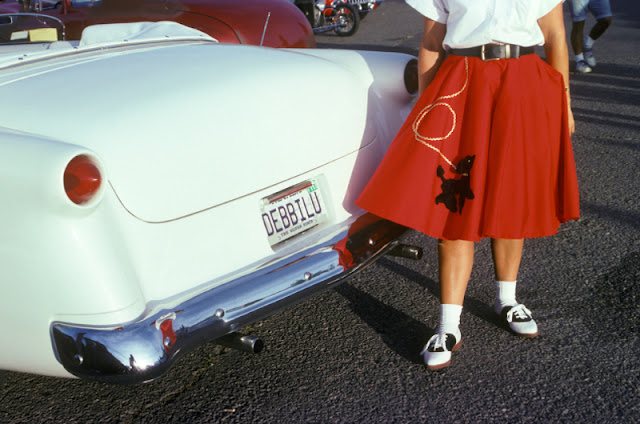Bobby socks are a style of women’s sock, white, ankle length or collected at the ankle, instead of at full extension up the leg. They were initially popular in the United States in the 1940s through the 1950s, later making a comeback in the 1980s.

By the 1940s teenagers began pairing the shoes with ankle socks, worn folded or slouched depending on the fashion at the time, known as “bobby socks.” The media coined the term “bobby soxers,” a group referring to teenage girls “addicted to adolescent fads and crazes.”

In addition to being ankle length, bobby socks are also typically ornamented with a layer of lace or other material. The tops of the socks may be designed to fold down to showcase decorative materials, and it is not uncommon to see a bow or similar ornament on the back of the sock. Traditionally, bobby socks are plain white, but patterned and colored versions are available in many regions of the world.

Some schools include bobby socks as a uniform option for their girls. Girls may choose to wear bobby socks to have an opportunity for more personal expression in a school with a strict dress or uniform code, or because the socks are more comfortable to wear. Because of the common use of bobby socks in school uniforms, plain versions of these socks are often readily available from companies which supply school uniforms and accessories, although women with large feet may not be able to fit into uniform socks, as they are designed for girls.

Bobby Socks in the 1940s and 1950s

Bobby Socks in the 1940s and 1950s

Bobby Socks in the 1940s and 1950s

Bobby Socks in the 1940s and 1950s

Bobby Socks in the 1940s and 1950s

Bobby Socks in the 1940s and 1950s

Bobby Socks in the 1940s and 1950s

Bobby Socks in the 1940s and 1950s

Bobby Socks in the 1940s and 1950s

Bobby Socks in the 1940s and 1950s

Bobby Socks in the 1940s and 1950s
